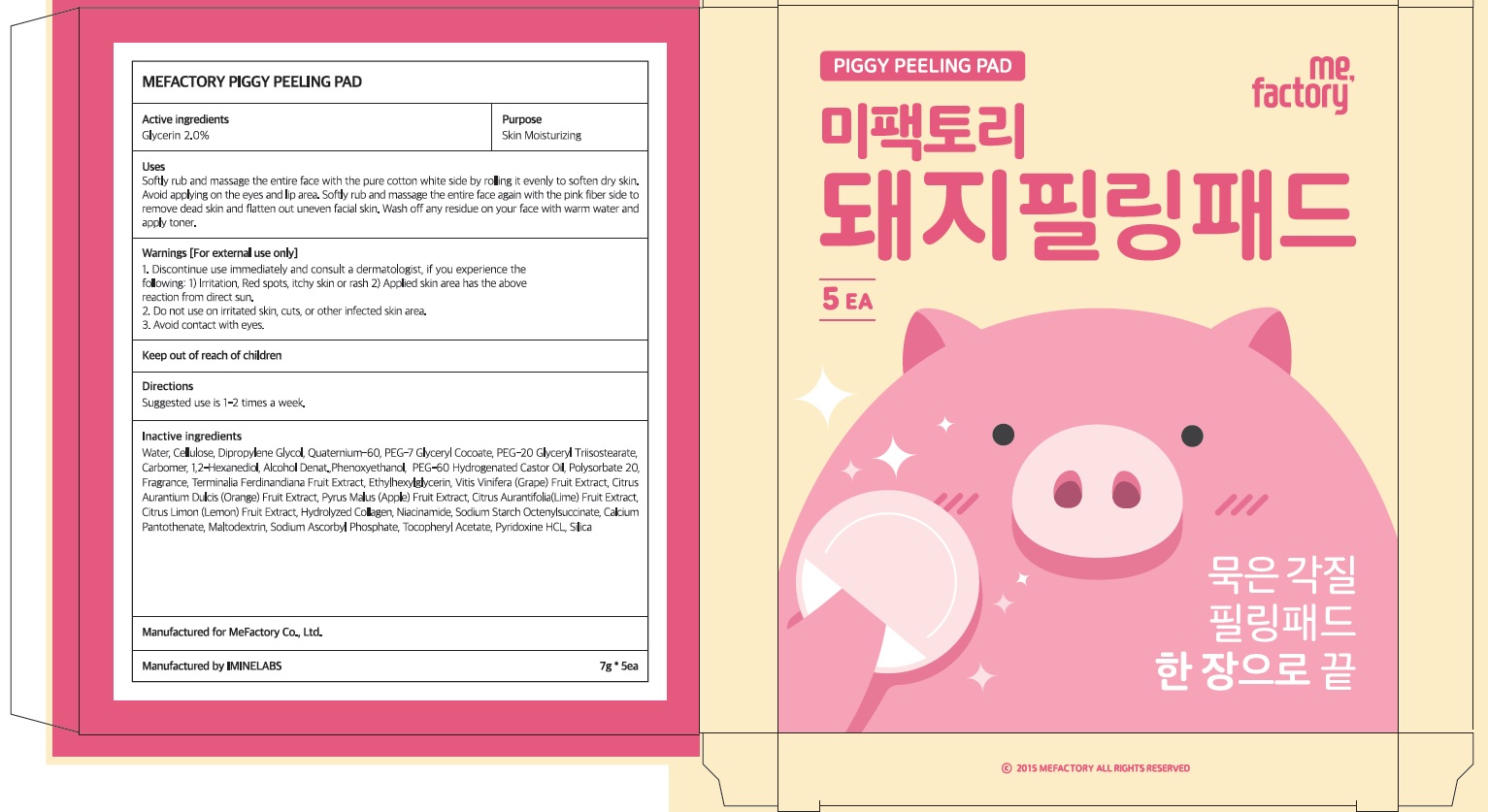Mefactory Piggy Peeling Pad | Glycerin Patch while Breastfeeding

What is Mefactory Piggy Peeling Pad | Glycerin Patch used for?
Brief: Skin Moisturizing
I am currently breastfeeding and I want to know if using Mefactory Piggy Peeling Pad | Glycerin Patch is safe for my kid? Does it have any effect on milk production?

Mefactory Piggy Peeling Pad | Glycerin Patch Breastfeeding Analsys
Glycerin while Breastfeeding
Low RiskCAS Number: 56-81-5
Glycerin or glycerol is a normal component of human tissues. Involved in lipid and galactose synthesis which is metabolized to glucose or glycogen.It is found naturally in breast milk, with a highest concentration in colostrum. When it is used rectally as a laxative, has little or no absorption. It has been used in preterm infants. The oral or intravenous administration is rarely used (extracellular edema, intracranial hypertension, diagnosis of Meniere's disease). A short half-life span makes it compatible with breastfeeding in these rare cases.It also compatible with intraocular administration. It has been used in creams and gels to treat pain and cracks of nipple during lactation without clear results on effectiveness. In those cases it should be cleaned thoroughly with water before the next breast suckling to prevent it could be swallowed by the infant, since a high intestinal absorption may induce an increased plasma osmolality that can result in dehydration of the infant.
I am nursing mother and I have already used Mefactory Piggy Peeling Pad | Glycerin Patch, what should I do?
During whole lactation period you shall first discuss with your doctor and then together you shall decide whether you shall take that drug or not however if you have already taken Mefactory Piggy Peeling Pad | Glycerin Patch then you shall inform your doctor, But you should not be worried too much as Mefactory Piggy Peeling Pad | Glycerin Patch comes in category of low risk drug.
My health care provider has asked me to use Mefactory Piggy Peeling Pad | Glycerin Patch, what to do?
Though Mefactory Piggy Peeling Pad | Glycerin Patch dose not comes in category of safe drugs rather it comes in category of low risk but if your doctor is aware that you are breastfeeding your baby and has still recommended it then its advantages must be outweighing the risks.
If I am using Mefactory Piggy Peeling Pad | Glycerin Patch, will my baby need extra monitoring?
Not much
Who can I talk to if I have questions about usage of Mefactory Piggy Peeling Pad | Glycerin Patch in breastfeeding?
US
National Womens Health and Breastfeeding Helpline: 800-994-9662 (TDD 888-220-5446) 9 a.m. and 6 p.m. ET, Monday through Friday
UK
National Breastfeeding Helpline: 0300-100-0212 9.30am to 9.30pm, daily
Association of Breastfeeding Mothers: 0300-330-5453
La Leche League: 0345-120-2918
The Breastfeeding Network supporter line in Bengali and Sylheti: 0300-456-2421
National Childbirth Trust (NCT): 0300-330-0700
Australia
National Breastfeeding Helpline: 1800-686-268 24 hours a day, 7 days a week
Canada
Telehealth Ontario for breastfeeding: 1-866-797-0000 24 hours a day, 7 days a week
